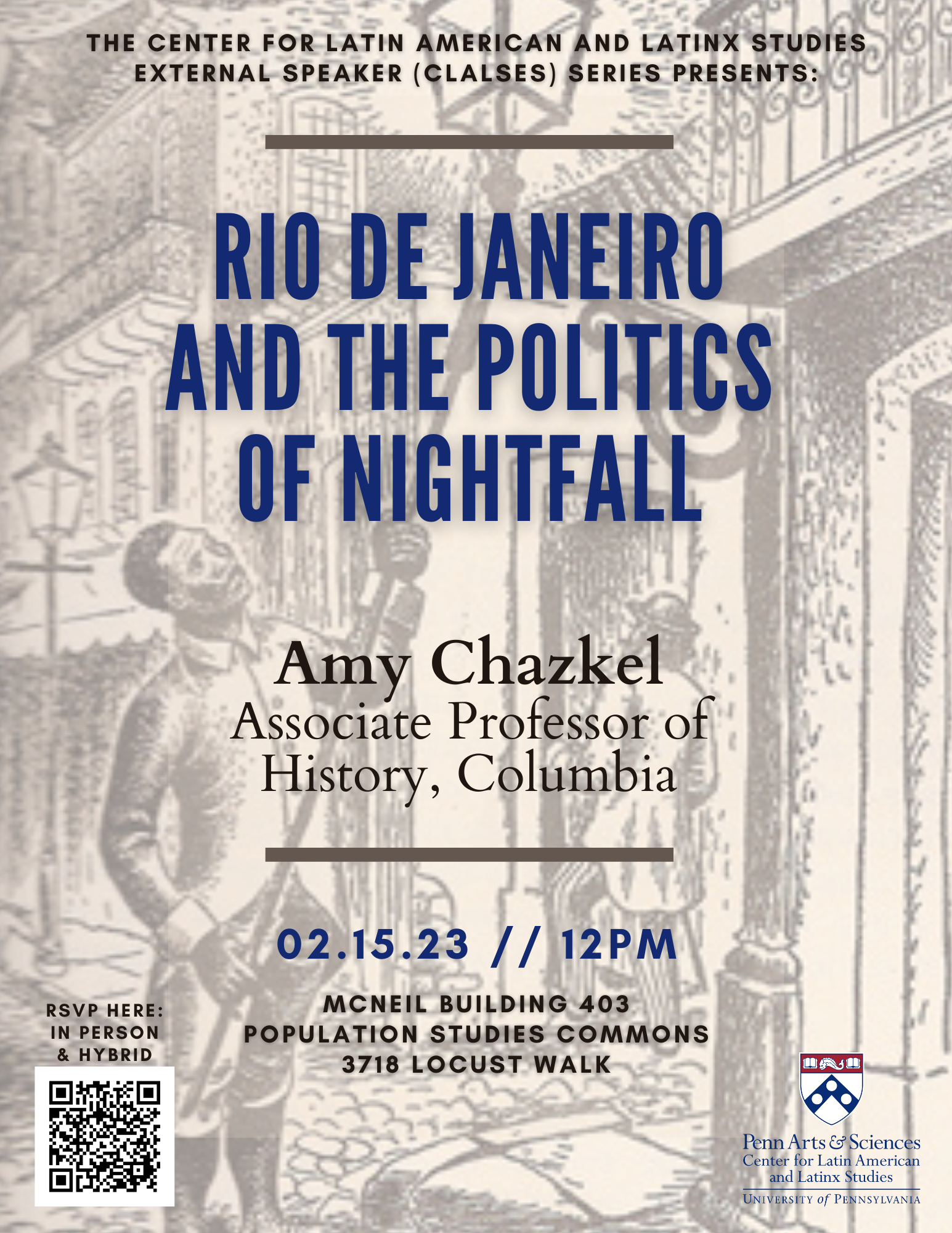CLALSES
McNeil Building 403
Population Studies Commons
3718 Locust Walk

This CLALSES talk is organized by CLALS-affiliated faculty member Melissa Teixeria, Professor of History.
Presenter Bio:
Amy Chazkel is Associate Professor of History and holds the Bernard Hirschhorn chair of Urban Studies at Columbia University. A specialist in modern Brazil, her research and teaching focuses on urban and legal history, the history of crime and policing and slavery and post-abolition societies. She is the author of Laws of Chance: Brazil’s Clandestine Lottery and the Making of Modern Public Life in Brazil (Duke University Press, 2011) and co-editor of The Rio de Janeiro Reader: History, Culture, Politics (Duke University Press, 2016). She is completing Rio de Janeiro and the Politics of Nightfall (forthcoming with Oxford University Press), a book about the history of the urban nighttime from the perspective of nineteenth-century Rio de Janeiro. She serves on the Radical History Review Editorial Collective. In addition to her published scholarship, she also co-directs the Columbia University Seminar on the Public Humanities and the working group, “Refugee Cities: Urban Dimensions of Forced Displacement,” sponsored by the Columbia Center for the Study of Social Difference.
Abstract:
In early- and mid-nineteenth- century Rio, the setting sun triggered a legal regime distinct from the one that prevailed in daylight: nightfall turned an artisan carrying a tool into a criminal wielding a weapon, and a person of color carrying out ordinary tasks in the city's public spaces into a presumed fugitive from slavery. Changes in the built environment and urban culture in the early twentieth century attenuated the legal and political importance of nightfall. Rio’s nightlife attracted—and employed—multitudes from across Brazil and, eventually, the world. Yet the long history of the distinction between day and night bore a lasting impact on the city’s legal culture into the twentieth century. This paper is a chapter of a book-length study in progress that uncovers a crucial but unexplored dimension of the development of the politics of everyday life in a modern city, the analysis of which has dwelled on questions of space but only started to consider time.

 Center for Latin American and Latinx Studies
Center for Latin American and Latinx Studies